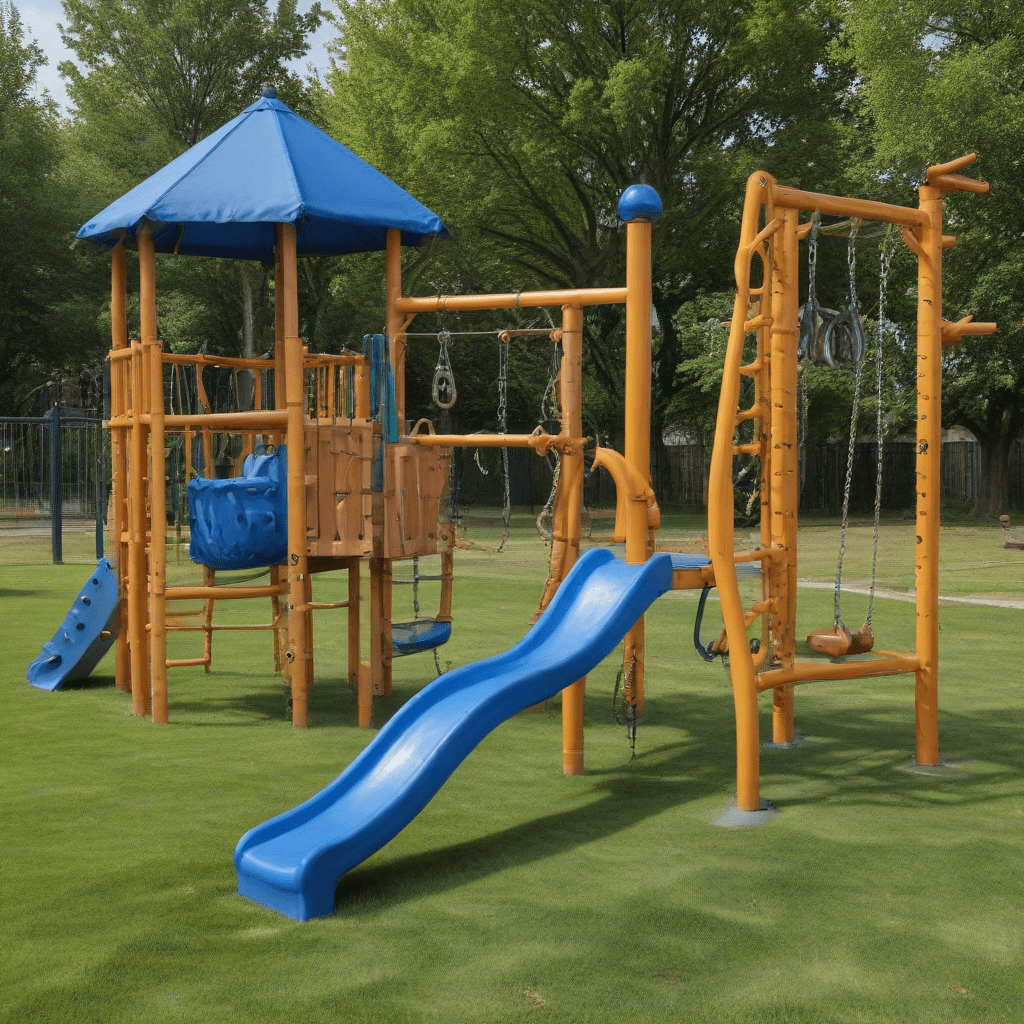
Introduction: Exploring the Importance of Playgrounds for Children’s Health
Outdoor playgrounds are vital environments that contribute immensely to the physical, cognitive, and social development of children. They offer a myriad of opportunities for kids to engage in active play, explore their surroundings, and interact with peers, fostering their overall health and well-being. This article delves into the multifaceted benefits of outdoor playgrounds, highlighting their crucial role in enhancing children's fitness and holistic growth.
Physical Fitness: Enhancing Motor Coordination and Gross Motor Skills
Playgrounds provide an ideal setting for children to develop and refine their motor skills. The diverse equipment and play structures encourage kids to engage in a wide range of physical activities, such as climbing, running, jumping, and balancing. These activities help improve their gross motor skills, such as coordination, agility, and balance. By navigating the challenges of the playground, children enhance their physical capabilities, promoting their overall health and fitness.
Cardiovascular Health: Promoting Active Play and Reducing Risks
Outdoor playgrounds foster active play, which is essential for children's cardiovascular health. Engaging in regular physical activity on playgrounds helps strengthen their heart muscles, improves circulation, and increases their overall aerobic capacity. This active play also contributes to reducing the risks of chronic diseases, such as obesity, heart disease, and diabetes, later in life. By providing ample opportunities for physical exertion, playgrounds play a crucial role in promoting children's cardiovascular health and well-being.
Cognitive Enhancement: Fostering Problem-Solving, Creativity, and Imagination
Playgrounds stimulate children's cognitive development in numerous ways. The challenges and obstacles they encounter encourage problem-solving and critical thinking skills. Imaginative play, which is often sparked in playground environments, promotes creativity and the ability to think outside the box. By providing opportunities for exploration and discovery, playgrounds foster children's curiosity and their eagerness to learn and understand the world around them.
Emotional Regulation: Providing Outlets for Stress Release and Mood Regulation
Outdoor playgrounds offer a safe and supportive space for children to express and regulate their emotions. Physical activity can serve as an outlet for stress and tension, helping children to cope with challenging situations and maintain a positive mood. Playgrounds also provide opportunities for social interaction, which can contribute to emotional well-being and reduce feelings of loneliness or isolation. By engaging in play and interacting with peers, children develop emotional resilience and learn to manage their emotions effectively.
Social Development: Encouraging Interaction, Cooperation, and Communication
Playgrounds are bustling social hubs where children interact with each other, form friendships, and develop essential social skills. Through shared play experiences, they learn to cooperate, negotiate, share, and resolve conflicts peacefully. They also develop empathy and compassion as they observe and interact with others from diverse backgrounds and perspectives. Playgrounds foster a sense of community and belonging, contributing to children's overall social and emotional development.
Environmental Literacy: Connecting Children with Nature and Promoting Conservation
Outdoor playgrounds connect children with nature, promoting environmental literacy and a sense of stewardship. Surrounded by trees, plants, and natural elements, children learn to appreciate the beauty and importance of the natural world. Playgrounds also provide opportunities for hands-on learning experiences, such as gardening or observing wildlife, which foster a love for the environment and an understanding of the need for conservation. By fostering a connection with nature, playgrounds help children develop a lifelong appreciation for the planet and its ecosystems.
Conclusion: The Vital Impact of Outdoor Playgrounds on Children’s Fitness and Holistic Growth
Outdoor playgrounds are essential for children's overall health and well-being. They provide a unique and multifaceted environment that supports physical, cognitive, emotional, social, and environmental development. By encouraging active play, playgrounds promote fitness, enhance cognitive skills, provide emotional outlets, facilitate social interaction, and foster environmental literacy. As such, playgrounds play a crucial role in shaping well-rounded, healthy, and happy individuals who are prepared to thrive in all aspects of life.
FAQs:
1. How much time should children spend playing outdoors each day?
Experts recommend that children engage in at least 60 minutes of moderate to vigorous physical activity each day. Outdoor playgrounds provide an ideal setting for children to meet this recommendation.
2. Are there any safety concerns to consider when children play on playgrounds?
Yes, it's important to ensure that playgrounds are well-maintained and age-appropriate for children. Parents and caregivers should supervise children while they play and make sure they follow safety rules, such as wearing helmets when appropriate.
3. What types of activities can children engage in on playgrounds?
Playgrounds offer a wide range of activities, including climbing, sliding, swinging, running, jumping, and imaginative play. These activities promote physical development, cognitive skills, and social interaction.
4. How can I find a suitable outdoor playground for my child?
Look for playgrounds that are well-maintained, offer a variety of age-appropriate equipment, and are located in safe and accessible areas. You can also check with your local parks and recreation department for recommendations.
5. What are some additional benefits of outdoor playgrounds?
In addition to the physical, cognitive, emotional, social, and environmental benefits mentioned above, outdoor playgrounds can also promote creativity, reduce stress, and improve sleep quality in children.

